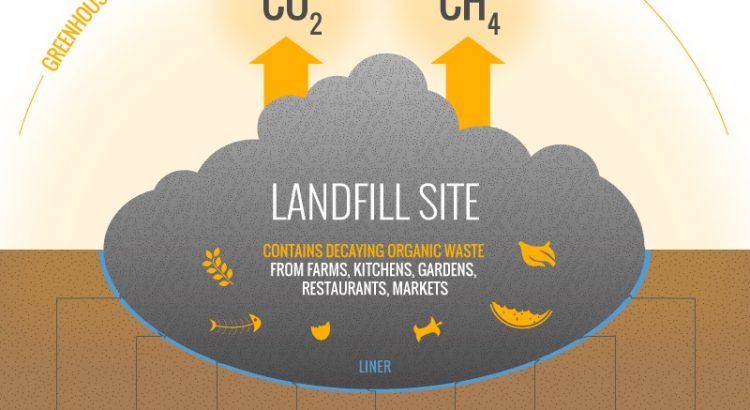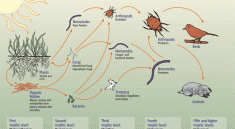Composting keeps organic matter out of landfills and can reduce greenhouse gases, Nitrous oxide 310 times and Methane 21 times the impact of CO2, Improved soil health
From the US Composting Council.
“What are greenhouse gases?
Greenhouse gases (GHG) are gases in the atmosphere that act
to trap heat near the Earth’s surface. While these gases and
this effect are naturally occurring, human activities have
caused an increase in the levels of these gases and thus an
increase in their effect. Because of the lag time between
emission and effect (up to 100 years) it is too late to
completely prevent some climate change, but there is much
that can be done to reduce emissions and thus reduce the rate
and extent of the change, giving us more time to prepare and
adapt to those changes.
Carbon dioxide (CO2) is the main GHG. In 2005, the US
released 6,090 Tg (Teragrams, or trillions of grams) of CO2,
which accounted for 85% of all US GHG emissions.5 The
burning of fossils fuels for energy and transportation was
responsible for 95% of the CO2 emitted. Since other gases,
such as methane (CH4) and nitrous oxide (N2O), are more
effective at trapping heat than CO2, the amounts and effects of
other gases are computed in terms of CO2 equivalents”
“How do organic discards contribute to
greenhouse gases?
By definition, all organic discards contain carbon. When they
decompose naturally under aerobic conditions the CO2 they
give off is part of the natural short-term carbon cycle6. Since
this is part of the natural flux of CO2 it is not considered in
GHG computations. However, when those organic discards are
placed in an anaerobic environment the decomposers will
convert and release the carbon as methane and other volatile
organic compounds which can contribute to global climate
change. Organic discards that are high in nitrogen, such as
food scraps, manures and grass clippings, under wet and
oxygen-limited conditions, can also produce N2O during
decomposition, roughly 300 times worse than carbon dioxide. ”
“How does composting effect Global Climate
Change?
To understand what effect composting has, we have to break
the composting system into three components: the feedstocks,
the composting process, and how the use compost product is
used. Composting will have an impact based on what might
have happened to the feedstocks if they were not composted,
how the composting operation is run, and what happens to the
compost. Positive impacts include emissions avoidance and
carbon sequestration. Negative impacts result from emissions
from the diesel powered processing equipment used to process
feedstocks. The net effect is determined by adding up the
benefits and detriments of each component.”
“Part 3: Compost Use
Compost that is incorporated into the soil will continue to
breakdown. Depending on the soil management practices,
temperature, rainfall and feedstocks; a portion of that
composted organic matter may become part of the soil’s long
term carbon pool (sequestration).
In addition, there are a number of indirect effects, such as,
increased soil moisture holding capacity and a reduction in the
need for fertilizers, herbicide or fungicide. This could result in
less irrigation, which would mean less energy used and
avoidance of associated GHGs. The same is true when
compost use results in reduced fertilizer, herbicide or fungicide
use.
In a detailed life cycle analysis of windrow composting in
Australia, the emissions from the production of compost and
composted mulch were more than outweighed by the benefits
of the use of composted products. The emissions came from
the use of fuel, water and electricity in compost production,
transport and application. The benefits came from carbon
sequestration and the reduction in fertilizers, electricity, water
and herbicides (and thereby reducing the emissions associated
with the production and use of these items). The net benefit
persisted even if the composted products were transported over
400 miles to the application site and the trucks returned
empty (Sharma and Campbell, 2003).7″
Read more:




